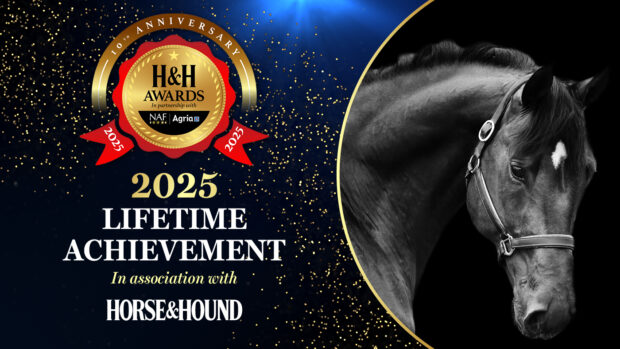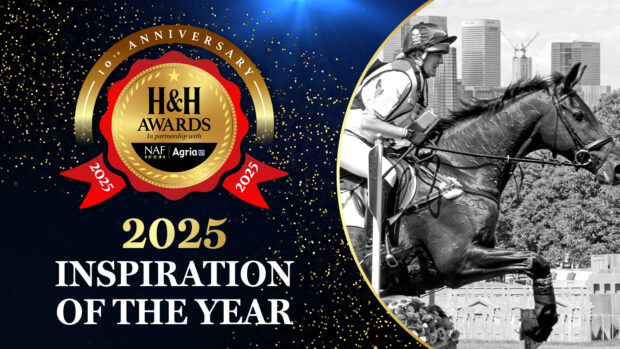Imagine you’re a horse. Your owner puts you in the trailer and drives you somewhere, possibly to a place you’ve never been, and takes you for a hack. But this is no ordinary ride: there is loads of galloping and jumping and, most exciting of all, horses everywhere — perhaps a greater number than you’ve ever seen before. And there are hounds, which you’ve never previously encountered.
It’s no surprise that sensory overload can occur when a horse goes hunting for the first time, but there are ways of making the event less overwhelming.
“A great deal rests on temperament, but how a horse is introduced to hunting is also important,” says Alan Hill, joint-master of the Vale of Aylesbury with Garth and South Berks. “The most common mistake I see with first-time hunters is lack of preparation.”
Alan and his wife, Lawney, also train point-to-pointers. They expose their young horses to as much as possible at home and occasionally take youngsters to local shows.
“When we hack out, we take our dogs with us because it helps with the ‘startle’ factor,” says Alan. “Going to shows makes being in a place with lots of lorries, horses, people and strange noises more familiar.”
Malcolm Arthers, who was master of the Atherstone for 11 seasons and has produced many young hunters, agrees.
“If horses haven’t seen much of life, such experiences do them good. Half the reason some horses become so overexcited hunting is that they lead dull, sanitised lives. If a horse is used to a bit of an atmosphere, it’s more likely to settle,” he says.
“Try to ride out with as big a group of horses as possible. This will also help you assess where your horse is happiest: does he have to go at the front or is he content to follow from behind? Hound exercise is ideal.”
Malcolm believes that selecting the right time to take out a novice is vital.
“A day with little galloping and jumping, is ideal for an inexperienced horse. A small field is also crucial. Obviously, autumn hunting is the gentlest introduction,” he says.
Autumn hunting meets also tend to be in fields, rather than villages or pub car parks, which offer more space for a young horse to settle and take everything in gradually.
Wherever possible, point-to-point trainer Caroline Bailey hacks her horses to meets, unboxing up to 20mins away.
“We always take at least one older horse,” explains Caroline. “They teach the others manners and also allow you to open gates and go off by yourselves if necessary.”
Finding a reliable equine mentor for your horse is a good move, especially when it comes to jumping.
John Docker offers this advice: “Pick a nice, inviting fence and make sure you’re behind something that you’re confident will go over — hopefully, your horse will just follow his friend.”
Eventer Polly Stockton hunts regularly with the Cheshire, where her husband Chris is a joint-master. She believes that hunting teaches youngsters to deal with all conditions and gives older campaigners a bit of fun and a sharpener.
“Sometimes a horse will find it too much and get way overexcited. If that happens, I try to take it out again as soon as possible so that the novelty factor wears off,” she says.
The York and Ainsty North’s hunt groom, Sally Peacock, also teaches at Pony Club camp and, being on the small side, is often asked to take new and inexperienced ponies hunting by their owners.
“Having a small adult or a confident older child to ride a pony is ideal. If it’s too small, lead it around at the meet for the first few occasions and take it from there.
“Parents must ensure that their own horse is sensible before taking a child on the lead-rein. If not, there are usually plenty of people willing to nanny children,” says Sally.
“If a horse or pony does light up, one approach I take is to go hell for leather. Hopefully, it will feel tired and remember next time that hunting is hard work and it needs to preserve its energy.
“Alternatively, if the rider is competent, go prepared with a stronger bit. Don’t have the horse fitter than it needs to be or fizzing over with oats.”
Horse & Hound’s Top Tips
- Always put a green ribbon on the tail of an inexperienced horse
- It’s good manners and advisable to tell the master beforehand
- Try to break your horse in gently with hound exercising and cubbing before hunting
- Pick days with small fields and easily negotiable country
- Ride with a sensible, more experienced horse
|
||
 |
||


 Get up to 19 issues FREE
Get up to 19 issues FREE TO SUBSCRIBE
TO SUBSCRIBE 


